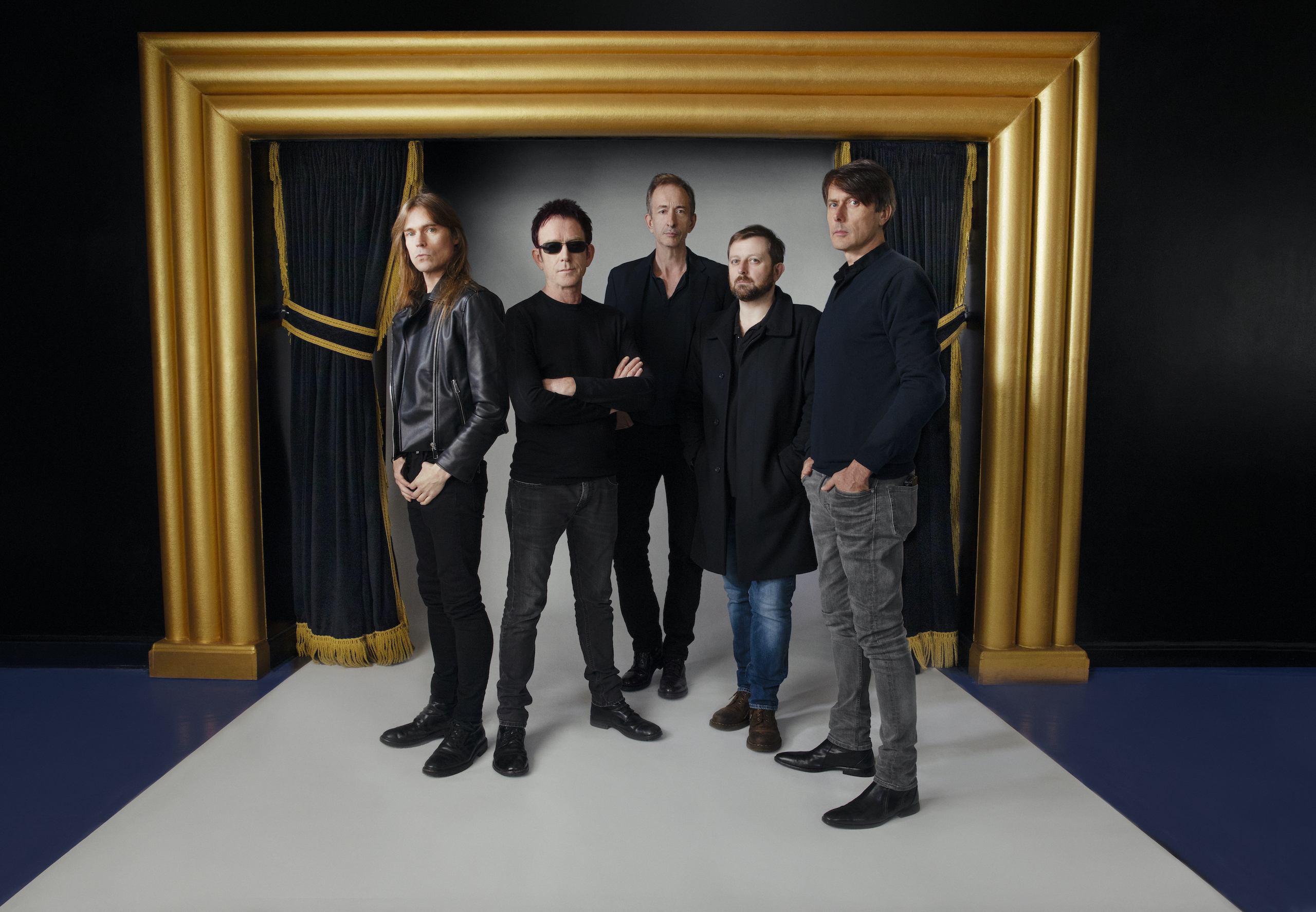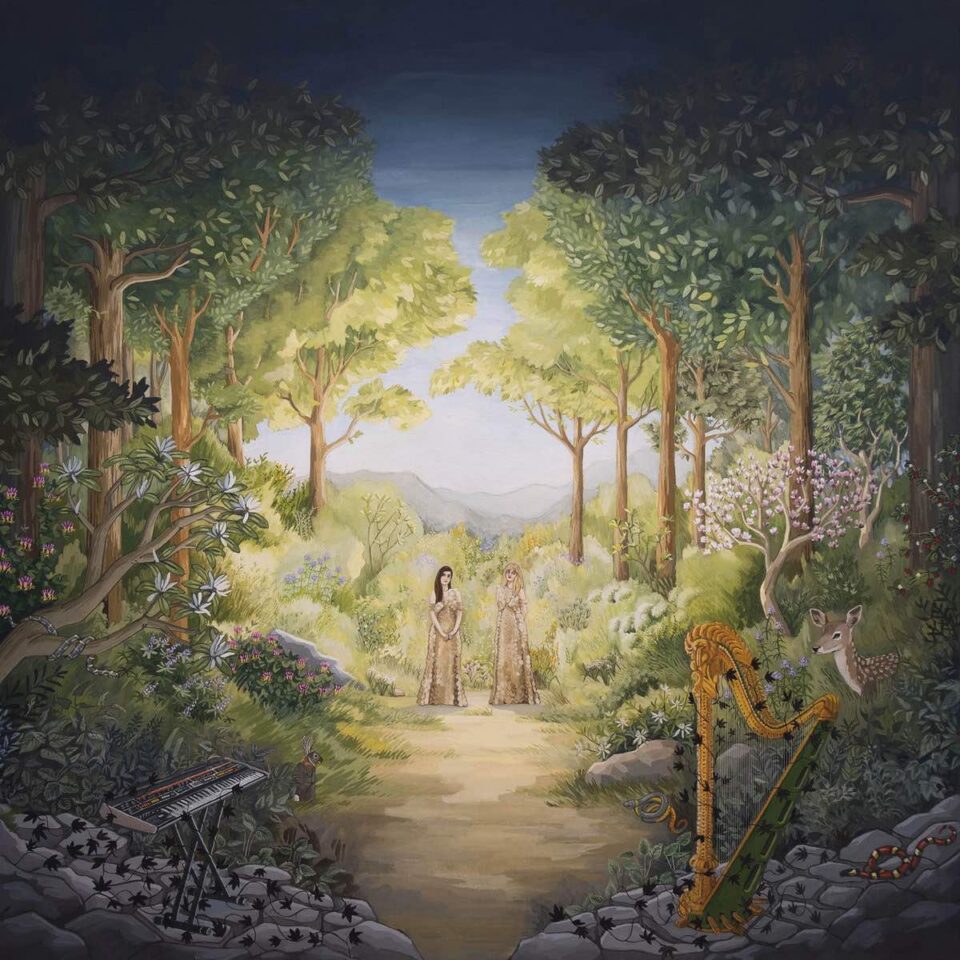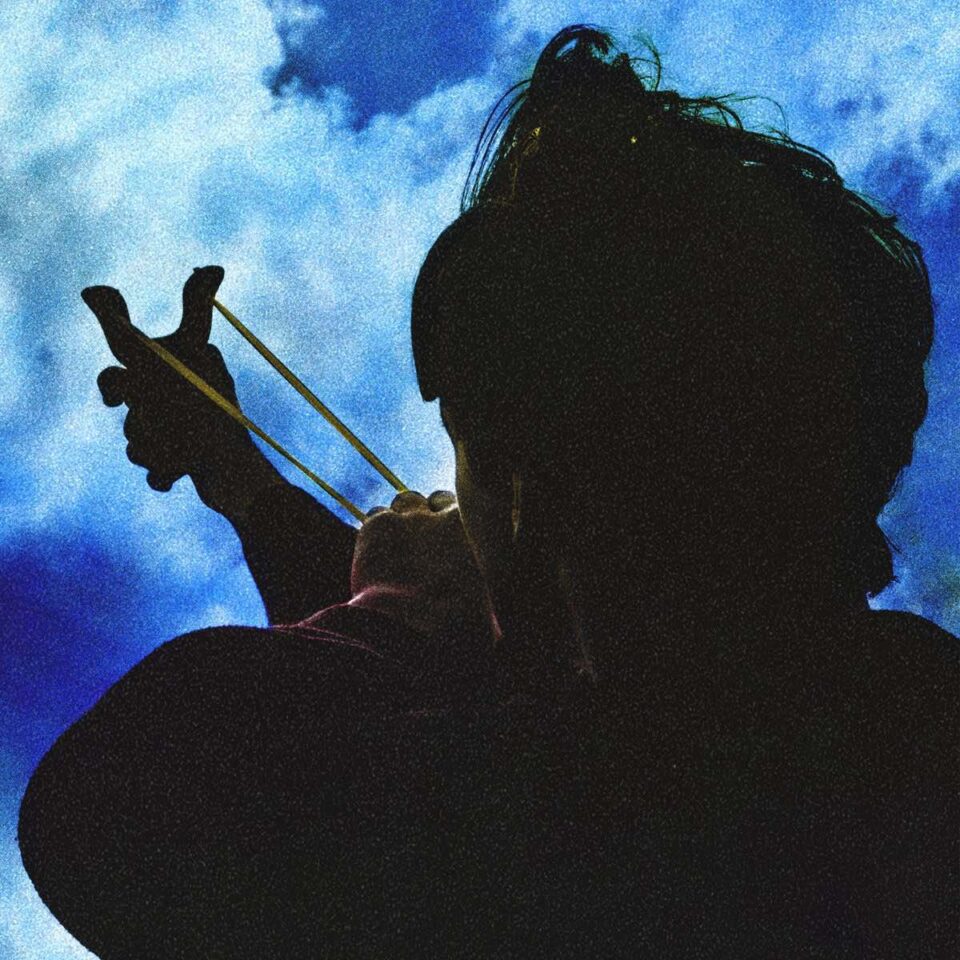On a quiet Wednesday night in Orange County, in front of a packed room at Anaheim’s House of Blues, Brett Anderson—the otherworldly frontperson of Suede—flings himself around the venue’s spacious stage like he’s possessed. He balances on the monitors at the edge of the stage, then drops to his knees repeatedly—impressive, and surely painful. His fitted shirt is stuck to his body with visible sweat. His skin-tight jeans threaten to split. He twirls his microphone cord in bigger and bigger arcs (a signature Anderson move), then lets it wrap around his neck and torso with a practiced finesse that has a touch of Cirque du Soleil to it.
The following evening, Anderson ramps it up for Suede’s show at the Hollywood Palladium. Not having performed in Southern California since the ’90s (barring a brief appearance at Coachella in 2011), Suede and their fellow headliners, Manic Street Preachers, are more than making up for their collective absence.
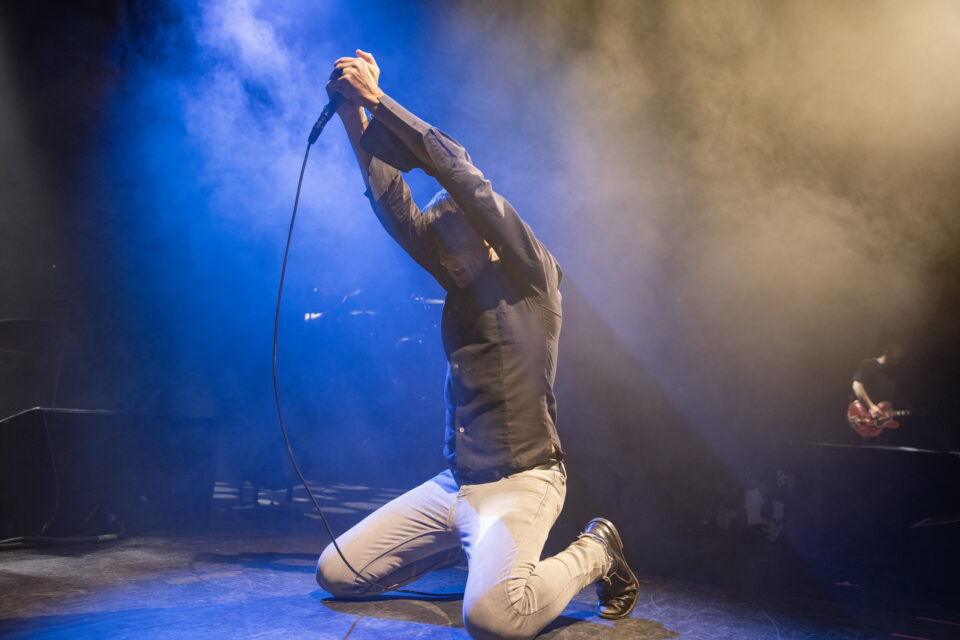
After the show, Anderson is mobbed when he turns up at the not-so-secret afterparty across the street from the Palladium. He makes a quick exit, but entertains the rabid reaction of a few fans before disappearing. As strange as it is to be groped and shrieked at, it must be an ego boost for Anderson, who spends his non-gigging days at home in the English countryside writing and refining Suede songs in between school runs.
“There’s persona and then there’s person—those are two very different things,” Anderson tells me, sitting in a hotel room at the Hollywood Roosevelt on his day off before these Southern California shows. “That hour and a half on stage is magic. You live for that hour and a half. There’s nothing that can replace that high. But I don’t chase that high when I’m at home. I’m not an adrenaline junkie. I have two lives, and I’m very easily able to slip from ‘persona’ back to ‘person.’”
Anderson sits with his arms and legs crossed, not smiling, with one eyebrow semi-cocked. His responses are quick and dry. He’s articulate and clever, and almost everything he says could be paired with a mic drop. Speaking from personal experience, his energy has been relatively the same for the last three decades. Detached and impervious, he has all the answers—even if he would beg to differ.
“I’ve no desire to be a nostalgia act. I’m not one of these people who laments the end of the ’90s. What interests me is what’s ahead.”
— Brett Anderson
For Stateside fans, the Suede excitement is pinned to their tour with the Manics, a pairing last seen in 1994. Anderson is quick to clarify, “This isn’t the start of us trying to break America. We haven’t been here for many years for one reason alone: because it’s expensive and we’ve got to make it work financially. I doubt we’ll come back for another 10 or 20 years, when I’m 75, so make the most of it.”
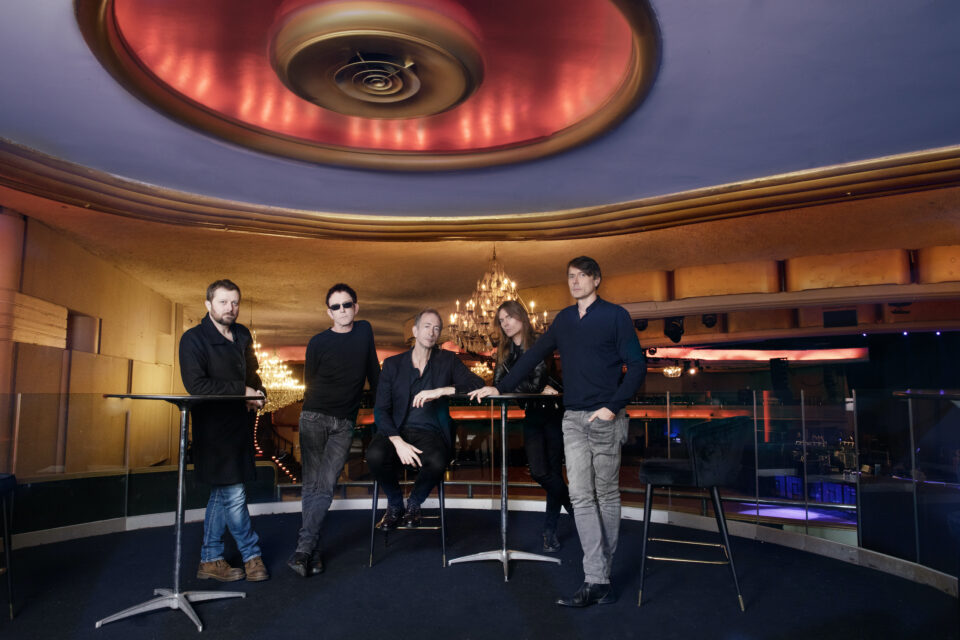
Although Suede isn’t performing too many songs from their new album Autofiction, which was released in September, that’s where Suede’s attention is focused. “I’ve no desire to be a nostalgia act,” states Anderson. “I’m not one of these people who laments the end of the ’90s. What interests me is what’s ahead. The last four albums are among the best of our career. At the same time, I’m very respectful of the fact that people have lots of love for those old songs. When you get the reaction and the dynamics right, the stuff is brilliant. It can be incredibly exciting playing some of them.”
“When you’re young, you can have missteps. You can be brave and fail and you shrug it off. You can’t do that later in your career. Who’s going to get excited about anybody’s ninth album?”
— Neil Codling
Autofiction is Suede’s ninth album in almost 30 years. The group returned to their longtime producer Ed Buller for the project, which intentionally captures Suede at their raw and live best. “We were always trying to needlessly reinvent the wheel,” says Neil Codling, Suede’s multi-instrumentalist and backing vocalist who joined the group in 1996, bringing with him a tangible grounding and balancing element.

“We were always questioning, ‘What are we going to be today?’” he continues, “rather than concentrating on what the band was best at. When you’re young, you can have missteps. You can be brave and fail and you shrug it off. It’s fine. You can’t do that later in your career. Who’s going to get excited about anybody’s ninth album? The competition is so fierce—you have to find a way to make it interesting or people will move on and find other things to listen to.”
“Songs have the subtlety of a brick. But, when you get it right, it’s so powerful. The right four notes of melody and five words can be as powerful as a whole book.”
— Brett Anderson
Despite being a later addition to Suede, Codling is so obviously meant to be in this band. With his white shirt open almost to his navel, his jacket with elbow patches, and his flowing locks, Codling looks like a cross between a scholar and a romance novel cover model. Cut-glass cheekbones aside, Codling has been a positive influence on Suede from the start. He adjusted Anderson’s diet and early on steered the group toward focusing more on the music and away from the peripheral parts of being rock stars.
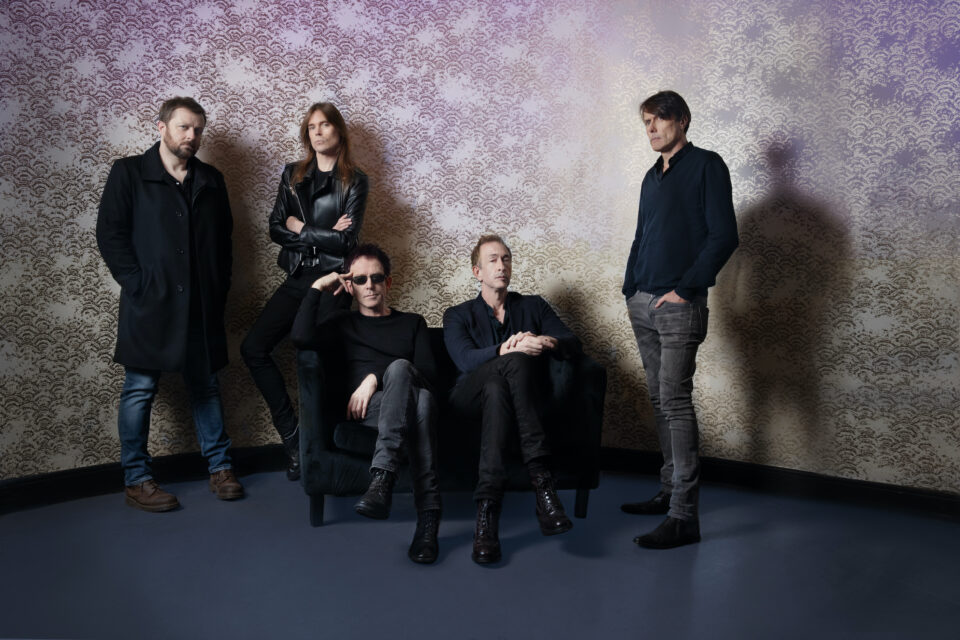
For Autofiction, Codling says Suede rehearsed extensively, “but we were going for that first spark. We tried to keep those first takes and not rely on computers, and not correct things. We’re quite chaotic and messy. There’s a sense that things might fall apart when we play live, which we tend to iron out when we make records. We wanted to keep that sense of danger.”
“It’s quite a carefree, blithe-sounding record,” says Anderson. “But it took a lot of prep work to make it sound like that.”

Unlike Suede’s initial run—from inception in 1989 to dissolution in 2003, which was fraught with Anderson’s well-documented addiction issues—their current era beginning with the group’s reformation in 2010 is one of non-stop writing. “Years ago, I just didn’t really want to do it,” admits Anderson. “Now, I love writing and I like chipping away at stuff. I know when things are right and when things aren’t ready.”
Anderson’s writing is aimed strictly at Suede output. He says he won’t be releasing any more solo albums, which he’s relegated to his pre-family-man days between 2007 and 2011, calling them “partially vanity projects.” And, despite the positive reception of his autobiography, Coal Black Mornings, and its follow-up, Afternoon with the Blinds Drawn, he definitively states he’s done with books. “I’ve run out of things to write about,” he says. “The first one was really good, and it had a cool ending. I enjoyed it so much that I wrote a second one. I don't think the second one was as good. It’s much harder to document success without slipping into cliché. It’s much more interesting and charming to document failure and struggle.”

Honing in on Suede material is where Anderson is at his creative best. “What I love about books is that you can literally go anywhere and explore labyrinths,” he says. “When you’re writing a song, you can’t do that. You have to be much more disciplined, because you have the rules of music and melody and rhyme that are hemming you in and forcing you to be very blunt with your work.
“Songs have the subtlety of a brick. But, when you get it right, it’s so powerful. The right four notes of melody and five words can be as powerful as a whole book. That’s the fascinating alchemy I’m always chasing as a songwriter. It doesn’t come very often, but when you get those moments, it’s an incredible feeling.” FL

